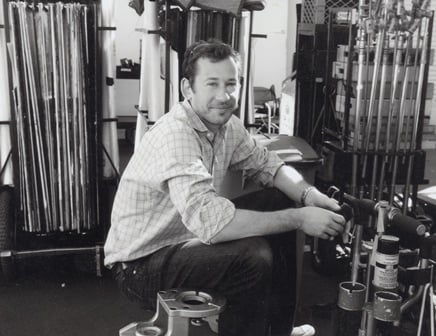Taxi alternatives – such as San Francisco car service Uber – have proliferated in big cities in recent years. But now a fleet of car-sharing startups are revving up.
The newest to the scene is Encino startup Hubber, which began taking signups in Los Angeles on Thursday. Hubber Founder Paul Davis has set his sights on eliminating the hassle of airport car rentals.
When Hubber goes live later this month, car-owners will be able to rent out their vehicles while they are out of town and visitors to the city will be able to use those vehicles for a fee.
A couple going on vacation for two weeks, for example, might typically pay to keep their car at an overnight parking lot near LAX. With Hubber, they can list their car online along with the dates it is available and its special features. Tourists visiting Los Angeles can then reserve that car online.
When the couple is ready to leave for their trip, they drop their car off at a Hubber-approved car lot near LAX. The tourists then pick up the car from an attendant when they arrive in town and return it to the same lot before they leave.
Davis, a film producer who’s credits include indie film “Better Living Through Chemistry,” said the idea behind Hubber is to help car-owners make a bit of extra cash while they are out of town – instead of leaving a car sitting unused at home or in an airport parking lot. He also wanted to create a simpler option for car renters.
“Part of Hubber stems from my work in film,” he said. “We shoot on location most of the time. I realized we were renting cars for an entire crew coming into Los Angeles while they were leaving their own cars sitting empty back at home.”
Hubber’s rental fees will start at about $45 a day based on the year, make and model of the vehicle. That price includes taxes, airport fees and insurance coverage. The company will take a cut and then pay the car-owner between $10 and $30 a day. Hubber will also return all cars washed with a full tank of gas.
Hubber’s rental fee starts at a higher rate than most rental car services. But Davis noted that rental car companies typically quote low base fees that don’t include insurance, gas or extra features. He said Hubber’s price factors in all those fees.
Because of its airport focus, Hubber is pitting itself against the rental car industry. Meanwhile, the startup is also competing against a glut of other car-sharing startups.
SideCar in San Francisco offers a carpool service that matches drivers with people who need a ride. Lyft, also based in San Francisco, similarly taps everyday drivers to pick up pedestrians. Meanwhile, Car2Go and ZipCar – which was acquired by rental service Avis Budget Group in January – provide a fleet of shared cars that members can reserve for hours or days.
But Davis said he isn’t worried about the competition.
“We embrace all those companies,” he said. “We’re all operating in a space where we think that sharing is the way that things are going. We’re building on the same values.”

